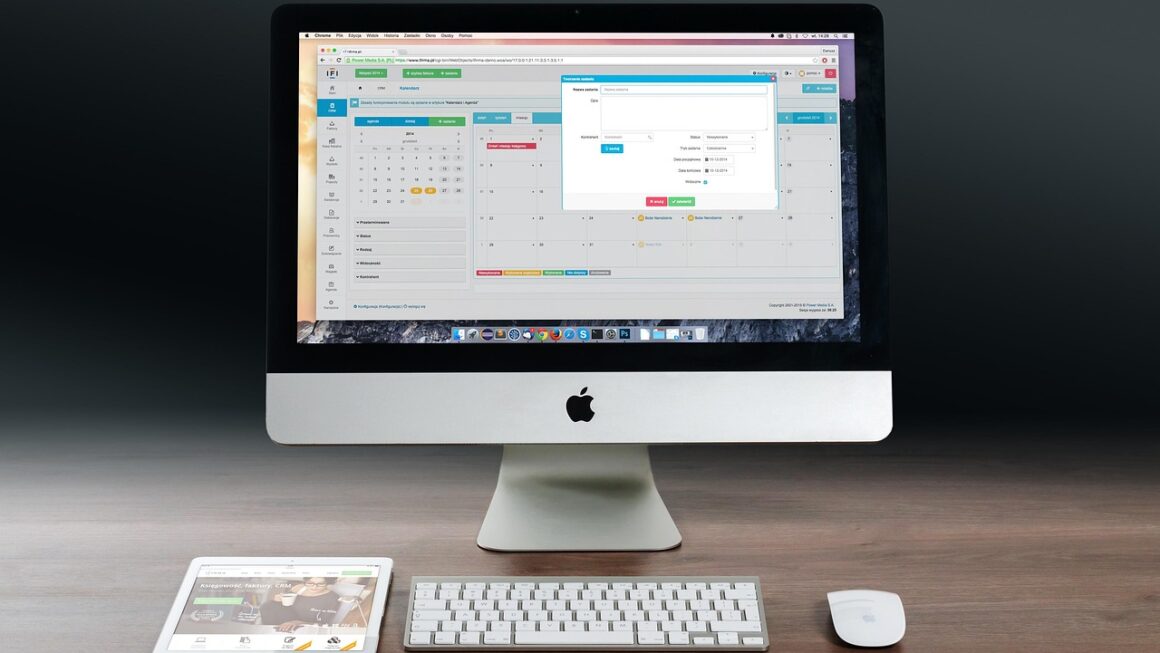Freelance platforms have revolutionized the way businesses and individuals connect with talent. Whether you’re a skilled professional seeking flexible work opportunities or a company in need of specialized expertise, these platforms offer a vast marketplace brimming with potential. Navigating this landscape, however, can be daunting. This guide provides a comprehensive overview of freelance platforms, covering everything from popular options and their unique features to strategies for success, ensuring you make the most of this dynamic gig economy.
What are Freelance Platforms?
Defining the Freelance Platform Ecosystem
Freelance platforms are online marketplaces that connect freelancers with clients seeking specific services. They act as intermediaries, providing tools and infrastructure for project management, communication, payment processing, and dispute resolution. Think of them as digital agencies connecting skilled individuals with projects that match their skillsets. They range from generalist platforms covering a wide array of services to niche platforms focusing on specific industries or skills.
The Benefits of Using Freelance Platforms
Using freelance platforms offers numerous advantages for both freelancers and clients:
- For Freelancers:
Access to a wider range of projects and clients than they might otherwise reach.
Flexibility to set their own rates and work schedules.
Simplified payment processing and project management tools.
Opportunity to build a professional portfolio and gain valuable experience.
- For Clients:
Access to a diverse talent pool of specialized skills.
Cost-effective solutions compared to hiring full-time employees.
Ability to quickly scale their workforce up or down as needed.
Reduced administrative overhead related to payroll and benefits.
Popular Freelance Platforms: A Deep Dive
Generalist Platforms: The All-Rounders
Generalist platforms cater to a broad spectrum of skills and industries, making them suitable for various projects.
- Upwork: One of the largest freelance platforms globally, Upwork offers a vast selection of freelancers across various categories, including writing, web development, design, and marketing. It features a robust project management system, secure payment options, and various communication tools. For example, a small business seeking a logo design and website development could find freelancers for both tasks on Upwork.
- Fiverr: Fiverr stands out with its gig-based system, where freelancers offer services starting at $5 (hence the name). It’s known for its affordability and quick turnaround times, making it ideal for smaller, well-defined tasks. A business needing a quick article written or a social media graphic created might turn to Fiverr.
- Guru: Guru emphasizes building long-term relationships between freelancers and clients. It offers tools for creating detailed contracts, tracking project progress, and managing invoices. A company looking for an ongoing content marketing strategy might find a long-term partner on Guru.
Niche Platforms: Specialization for Specific Needs
Niche platforms focus on specific industries or skill sets, allowing clients to find highly specialized expertise.
- Toptal: Toptal caters to top-tier freelance developers, designers, and finance experts. It’s known for its rigorous screening process, ensuring that only the most skilled professionals are accepted onto the platform. A tech startup needing experienced software engineers would likely find suitable candidates on Toptal.
- PeoplePerHour: This platform focuses on UK-based and European freelancers, offering a wide range of services, including design, marketing, and web development. It emphasizes hourly rates and provides tools for tracking time and managing projects. A UK-based marketing agency needing freelance copywriters might use PeoplePerHour.
- Freelancer.com: A global platform, similar to Upwork but with features such as contests where clients can post project descriptions and freelancers submit their designs or solutions. The client chooses the best entry and awards the prize. This is useful for visual projects like logo design or product mockups.
Strategies for Success on Freelance Platforms
Crafting a Compelling Profile
Your profile is your first impression. It needs to be professional, engaging, and showcase your skills effectively.
- Use a Professional Photo: A clear, professional headshot is essential for building trust.
- Write a Detailed Summary: Highlight your key skills, experience, and unique selling points. Tailor your summary to the types of projects you’re interested in.
- Showcase Your Best Work: Build a portfolio of your best work to demonstrate your capabilities. Include diverse examples that align with the services you offer.
- Get Verified: Verification badges add credibility to your profile. Complete all available verification steps.
- Example: Instead of writing “I’m a writer,” write “I’m a seasoned content writer specializing in SEO-optimized blog posts, website copy, and marketing materials. I help businesses increase their online visibility and attract more customers.”
Winning Projects and Building Relationships
Securing projects requires a strategic approach.
- Tailor Your Proposals: Avoid generic proposals. Customize each proposal to the specific requirements of the project, demonstrating that you understand the client’s needs.
- Highlight Relevant Experience: Emphasize the experience and skills that directly address the project’s requirements.
- Set Competitive Rates: Research the market rates for your skills and experience. Balance your desire for high pay with the need to attract clients.
- Communicate Effectively: Respond promptly to client inquiries, maintain clear and professional communication throughout the project, and proactively address any concerns.
- Example: If a client needs a social media marketing campaign, showcase your experience in that area by stating: “I have a proven track record of creating engaging social media campaigns that drive results. In my previous role at [Company Name], I increased social media engagement by 30% in just three months.”
Managing Projects and Ensuring Client Satisfaction
Delivering high-quality work and exceeding client expectations is crucial for building a successful freelance career.
- Set Clear Expectations: Define the scope of work, deliverables, timelines, and payment terms upfront.
- Maintain Open Communication: Keep clients informed of your progress, provide regular updates, and address any questions or concerns promptly.
- Deliver High-Quality Work: Focus on delivering work that meets or exceeds client expectations. Proofread your work carefully and ensure it aligns with the client’s specifications.
- Request Feedback and Testimonials: After completing a project, request feedback from the client. Positive testimonials can significantly boost your profile and attract new clients.
- Example: “To ensure client satisfaction, I provide regular updates on project progress and actively solicit feedback throughout the process. I also offer a revision period to address any concerns and ensure the final product meets your expectations.”
Navigating Fees, Payments, and Security
Understanding Platform Fees
Freelance platforms typically charge fees to both freelancers and clients. These fees can vary depending on the platform and the specific service.
- Freelancer Fees: Platforms often charge a percentage of the project earnings as a commission. This can range from 5% to 20%.
- Client Fees: Some platforms may charge clients a fee for posting projects or using premium features.
- Payment Processing Fees: Transaction fees may apply for processing payments through the platform.
- Example: Upwork charges freelancers a sliding scale fee, starting at 20% for the first $500 earned with a client, decreasing to 10% for earnings between $500.01 and $10,000, and 5% for earnings over $10,000.
Secure Payment Methods
Using secure payment methods is essential for protecting your financial information and ensuring timely payments.
- Escrow Services: Escrow services hold payment until the project is completed to the client’s satisfaction. This protects both freelancers and clients from potential fraud.
- Milestone Payments: Breaking down projects into smaller milestones with scheduled payments can reduce risk and ensure timely compensation.
- Direct Deposit: Platforms often offer direct deposit options for receiving payments, which can be more convenient and secure than other methods.
Ensuring Security and Avoiding Scams
Be vigilant to protect yourself from scams and fraudulent activities.
- Research Clients Thoroughly: Check the client’s profile, rating, and reviews before accepting a project.
- Avoid Suspicious Requests: Be wary of clients who ask for upfront payments outside the platform or request personal information that is not relevant to the project.
- Use Platform Communication Channels: Communicate with clients only through the platform’s designated channels to maintain a record of all interactions.
- Report Suspicious Activity: Report any suspicious activity or potential scams to the platform’s support team.
Future Trends in Freelancing
AI and Automation
AI and automation are increasingly impacting the freelance landscape, with tools being developed to automate tasks, improve efficiency, and enhance communication.
- AI-Powered Task Management: Tools that automate project scheduling, task assignment, and progress tracking.
- AI-Driven Content Creation: AI tools that can assist with writing, editing, and creating content.
- Automated Customer Support: Chatbots and AI assistants that can handle basic customer inquiries and provide support.
The Rise of Remote Work
The trend towards remote work is expected to continue, further fueling the growth of the freelance economy.
- Increased Demand for Remote Workers: More companies are embracing remote work models, leading to greater demand for freelance talent.
- Greater Flexibility and Work-Life Balance: Freelancing offers greater flexibility and work-life balance, attracting more professionals to this career path.
- Global Talent Pool: Remote work allows companies to access a global talent pool, fostering diversity and innovation.
The Gig Economy Continues to Evolve
The gig economy is constantly evolving, with new platforms, services, and business models emerging.
- Specialized Niche Platforms: A growing number of niche platforms catering to specific industries and skill sets.
- Subscription-Based Freelancing: Subscription models that provide clients with ongoing access to freelance talent.
- Blockchain-Based Freelance Platforms: Platforms that leverage blockchain technology for secure and transparent payments and contracts.
Conclusion
Freelance platforms offer incredible opportunities for both freelancers and businesses. By understanding the different types of platforms, developing effective strategies, and navigating the intricacies of fees, payments, and security, you can unlock the full potential of the gig economy. Remember to focus on building a strong professional profile, delivering high-quality work, and fostering long-term relationships with clients. As the freelance landscape continues to evolve, staying informed and adaptable is key to success.




